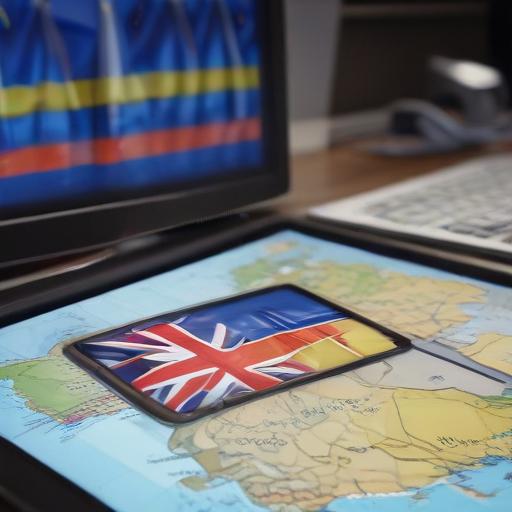Keir Starmer courts Trump as Ukraine strategy hinges on a delicate transatlantic balance
Keir Starmer is positioning himself as a bridge between the United States and Europe on Ukraine, hoping to translate a personal rapport with Donald Trump into concrete US security guarantees while clearly defining Europe’s red lines on any peace plan.
With Zelenskyy set to meet Trump at the White House on Monday, Starmer has signaled he will join European leaders in backing the Ukrainian president during the high-stakes talks. The London-diplomacy playbook—emphasizing UK influence over US-European diplomacy—has become a recurring feature of British strategy, and Starmer has leaned into the idea that he can work with Trump while keeping Washington aligned with Europe’s limits on negotiations with Moscow.
In recent months, Starmer has repeatedly sought to press his case in person: a February Oval Office encounter with Trump, a bilateral at the G7 in Canada, and engagement during Trump’s more casual visit to Scotland last month. The government has also highlighted Starmer’s outreach, including a written invitation from the king for a possible second state visit to the United States.
To underpin the approach, No 10 has publicly praised Trump’s “efforts to end Russia’s illegal war in Ukraine,” even as many British diplomats privately view Trump’s Alaska summit with Putin as at best inconclusive and at worst a potential trap. Yet Trump has consistently signaled warmth toward Starmer, despite stark political differences between the two men.
The dynamic can be swiped away by events. Starmer’s careful Oval Office moment was followed by Trump’s unpredictable moves—first upending expectations with a dramatic meeting, then stepping back from calls for restraint in tensions between Israel and Iran. Monday’s White House gathering could meet a similar rush of uncertainty, especially if Trump hints at Ukraine territorial concessions that Kyiv and other European leaders have rejected.
Still, there is value in the effort beyond immediate outcomes. Diplomatic engagement with the American president remains a core plank of keeping Ukraine in focus for Western allies, and Starmer’s approach seeks to blend personal rapport with clear European positioning. If nothing else, maintaining this line could help sustain cross-party consensus on Kyiv and reinforce the idea that Western democracies are united in supporting Ukraine.
For readers following the broader arc, Starmer’s strategy reflects a broader question: can a leader leverage a fraught personal relationship with a controversial U.S. president to advance a shared international objective without compromising long-standing European red lines?
Summary in plain terms: Starmer is trying to convert personal diplomacy with Trump into tangible US support for Ukraine, while steadfastly upholding Europe’s red lines on any peace terms. The effort underscores the UK’s intent to play mediator between Washington and European capitals, even as the path ahead remains uncertain.
Additional context and value for editors:
– Angle: Assess how UK diplomacy under Starmer differs from the previous government’s approach to the US on Ukraine, and what that means for transatlantic cooperation.
– Local interest: Tie into the symbolism of UK-Ukraine solidarity, including public moments like formal gestures with Zelenskyy and British leaders, and how those visuals influence public perception.
– Risk factor: Highlight potential pitfalls if Trump’s stance shifts or if negotiations falter, and what it would require from UK officials to keep the transatlantic line aligned.
– Data point ideas: Compare Starmer’s public statements and engagements with Trump to those of other Western leaders to illustrate where the UK stands within the alliance.
Logical explanation: The UK’s strategy leverages Starmer’s perceived willingness to engage with Trump for leverage, while anchoring discussions to Europe’s non-negotiable red lines. The underlying assumption is that American patience and willingness to secure Ukrainian security guarantees depend, in part, on personal diplomacy and on demonstrable cross-border unity in Europe’s approach to Russia.
Hopeful spin: If Starmer succeeds in keeping Trump engaged and focused on Kyiv’s priorities, the alliance could gain a clearer path to security guarantees for Ukraine and a more stable, united Western stance in the face of Russian aggression.
Overall verdict: The article provides a timely analysis of UK-US-Ukraine diplomacy and Starmer’s role, with a balanced view of opportunities and risks as events unfold.
